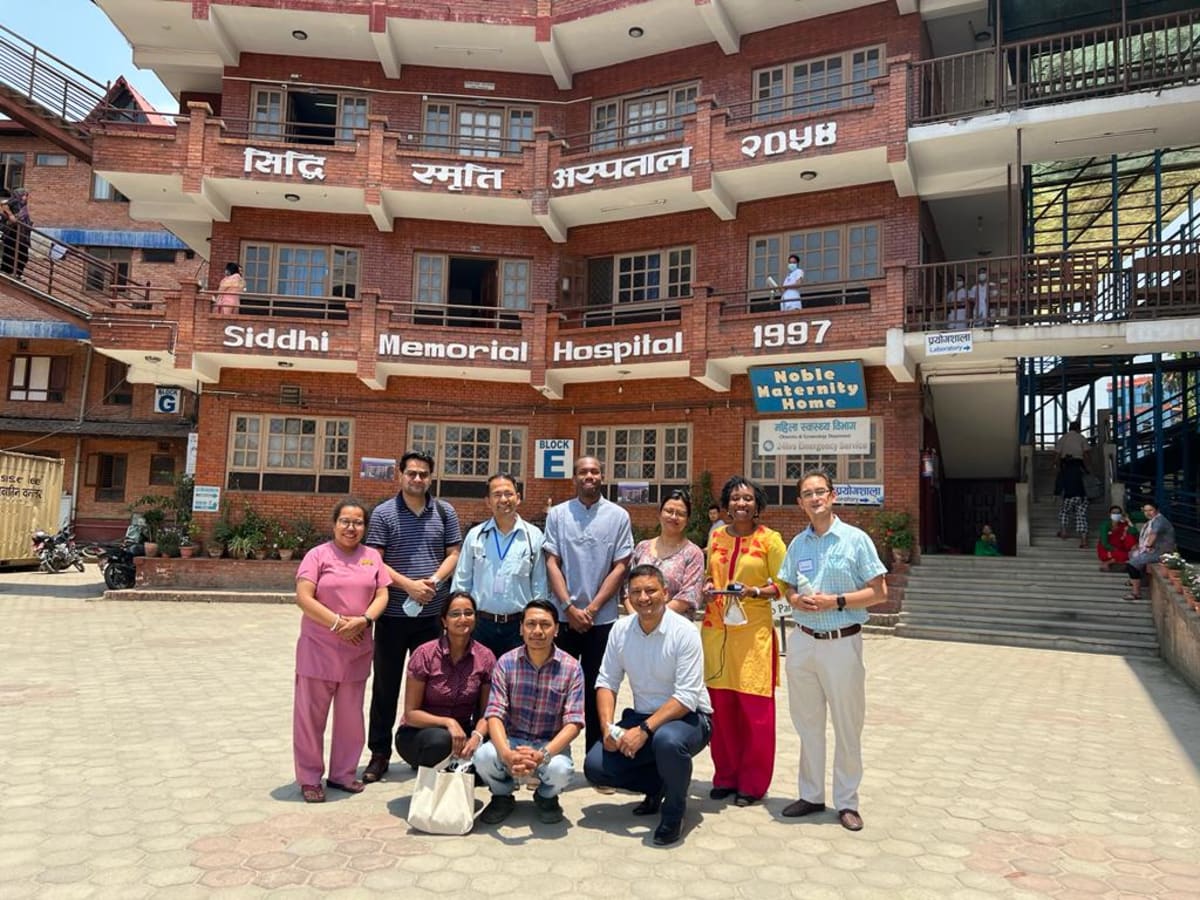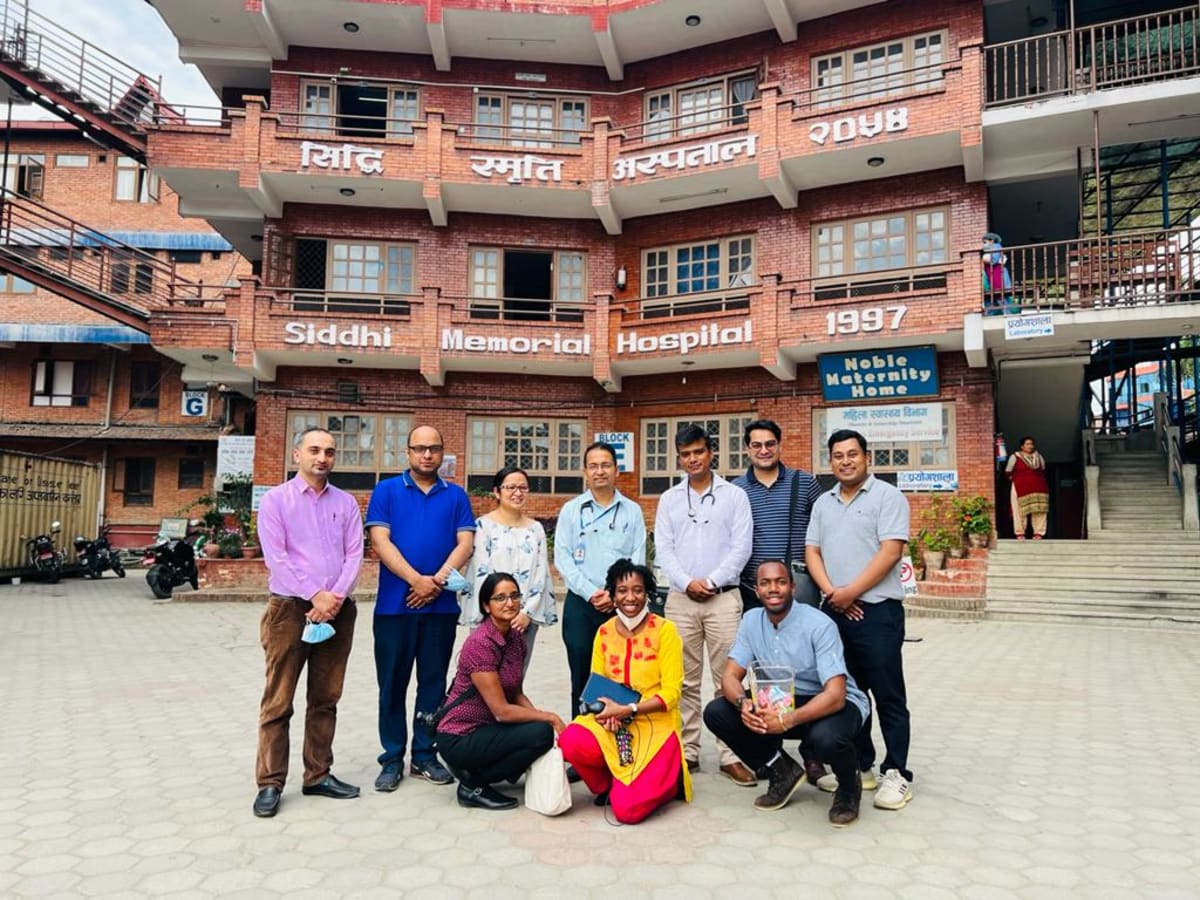Pneumonia remains one of the top 5 causes of under-5 mortality worldwide and in Nepal. Despite chest x-ray being a common modality for diagnosis, its availability and sensitivity, can prove limiting, especially in resource limited settings. Bedside point of care lung ultrasound (POCLUS) is more sensitive, does not require patient transport and often more readily available in rural settings in Nepal. Despite the urgent need, clinicians in Nepal do not have the necessary skills to perform POCLUS. Our project aims to demonstrate that pediatric POCLUS is a feasible way to diagnose pediatric pneumonia and can change clinical management.
We aim to improve care of pediatric patients by training a cohort of Nepali pediatricians to perform point of care lung ultrasound (POCLUS) in suspected pneumonia cases. We believe POCLUS will decrease delays in diagnosis and initiation of treatment of pediatric pneumonia.
The study site is the Siddhi Memorial Hospital in Bhaktapur, Nepal which is a children and women’s hospital. This hospital serves 14,000 pediatric patients per year. Our team will develop a POCLUS curriculum to initially train 10 pediatricians how to perform POCLUS. We are focusing on this population as the physicians requested our content expertise in this area as remains one of the top 5 causes of under-5 mortality worldwide and in Nepal. Our colleagues in Nepal are incredibly motivated to make changes that impact their pediatric community.
Our goal is to improve care of pediatric patients with suspected pneumonia by decreasing diagnostic delays and treatment initiation. To that end, we intend to perform a study to demonstrate change in clinical behaviors of the providers.
After this initial training, we hope to continue this project by creating a Training of the Trainer (TOT) curriculum to prepare the current participants to teach other clinicians in rural areas how to perform POCLUS. Our goal in using the TOT model is to create a cadre of Nepali pediatricians continuously disseminate this knowledge in rural areas, ensuring sustainability through capacity building.
We will also plan to set up monthly image review sessions with our Nepali colleagues. These sessions are intended to provide mentorship for our colleagues by reviewing cases they have seen in the prior month, providing feedback on image acquisition, and helping to troubleshoot any technical difficulties with their ultrasound machines.








Particularly when access to the chest x-ray for pediatric patients is limited, point-of-care lung ultrasound (POCLUS) is a highly sensitive tool that can be used to better characterize lung pathology. The purpose of our trip was to provide an educational intervention to teach point-of-care lung ultrasound to a group of pediatricians in Bhaktapur, Nepal. The intervention involved online pre-learning over several months, followed by 6 days of hands-on training in a workshop setting and at the bedside with children admitted to the wards.
It was a real pleasure to teach such an engaged group of pediatricians that showed up daily for this workshop amidst a flurry of other important patient care responsibilities. By the end of the workshop, the pediatricians had demonstrated their ability to scan their patients and describe how they could use this technology to make patient care decisions. They also understood the value of this tool especially when the x-ray was not available to them after typical daytime working hours. The patients we scanned, and their parents, were willing participants in this intervention and had tremendous patience for the learning process.
Our goal is to continue the learning process remotely for the next 6 months, with regular image review of scans performed by the course participants. This is a crucial component of the educational process as it helps solidify the concepts learned.
It is our goal to replicate a course similar to this one in other areas of Nepal where access to health care is even more limited.